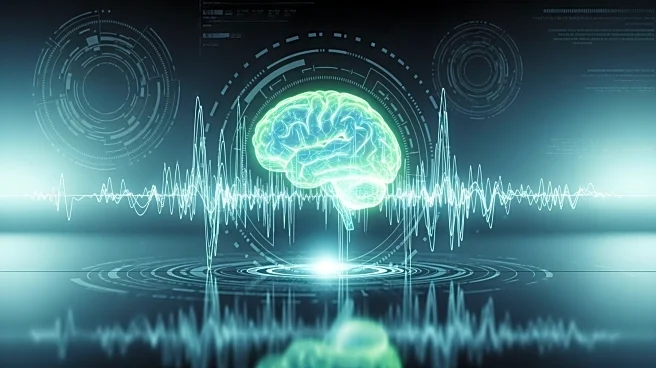What's Happening?
Researchers at the Feinstein Institutes for Medical Research have developed an AI-powered monitoring system that can predict the need for emergent interventions in hospitalized patients. The system uses wearable devices to continuously monitor vital signs
and employs a deep learning algorithm to predict patient deterioration up to 17 hours in advance. This early warning system allows healthcare providers to intervene sooner, potentially improving patient outcomes. The study, published in Nature Communications, involved 888 adult non-ICU patients and demonstrated the AI's ability to predict 50% of rapid response team activations and 83% of unplanned ICU transfers.
Why It's Important?
The implementation of AI in healthcare settings represents a significant advancement in patient care. By predicting patient deterioration earlier than traditional methods, this system can help reduce the incidence of adverse clinical outcomes, such as cardiac arrest or the need for breathing tubes. This technology could lead to more efficient use of hospital resources, reduce healthcare costs, and improve patient safety. The ability to anticipate and address potential complications before they become critical is a major step forward in hospital care, potentially saving lives and enhancing the overall quality of healthcare services.
What's Next?
The next steps involve further validation and potential integration of this AI system into hospital workflows. As the technology proves its effectiveness, it may be adopted by more healthcare facilities, leading to widespread improvements in patient monitoring and care. Ongoing research will likely focus on refining the algorithm and expanding its capabilities to include a broader range of clinical scenarios. Collaboration with healthcare providers and technology companies will be essential to ensure the system's successful implementation and to address any ethical or privacy concerns related to patient data.















